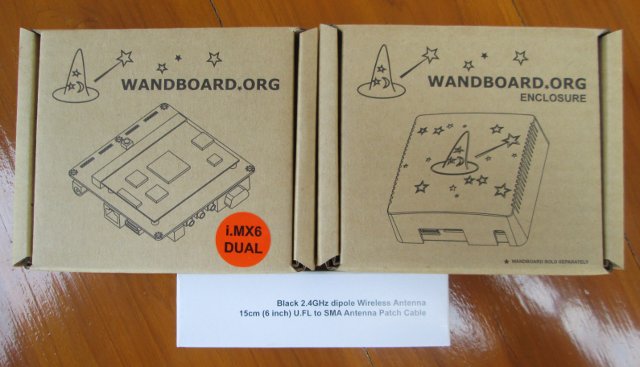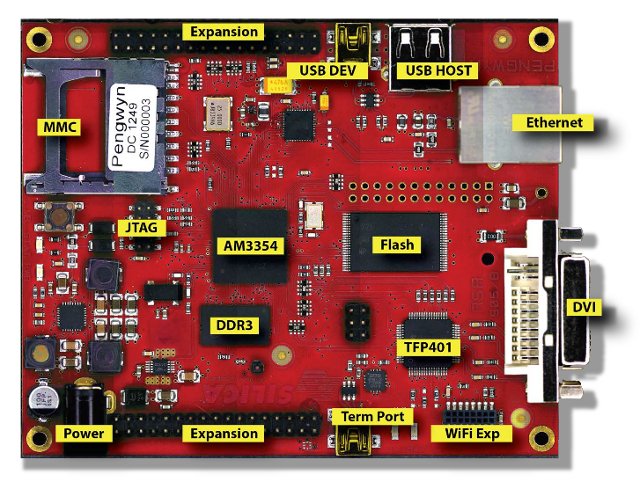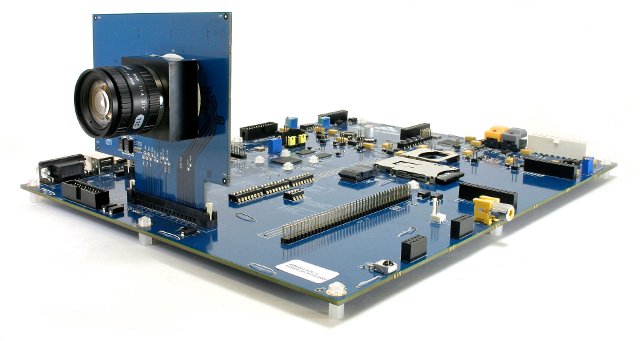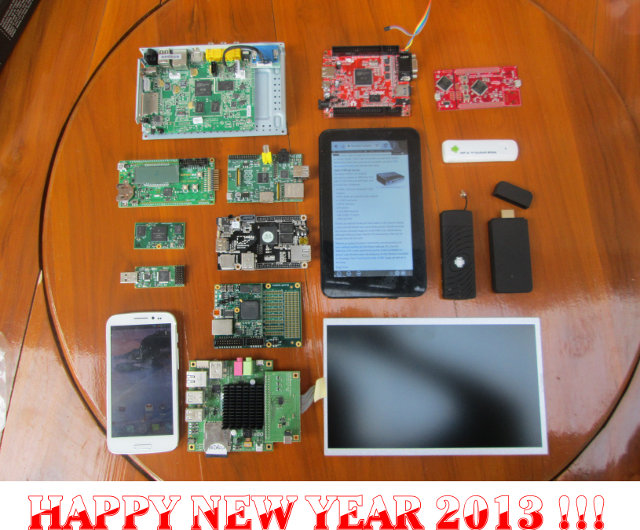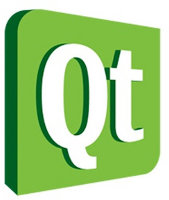Sailfish OS is a new mobile operating system based on the Qt platform that will soon end-up in mobile phone near you. Until now it was possible to build the SDK yourself, but it was pretty challenging since the documentation was lacking, as Jolla, the company behind Sailfish OS, focused on development. The good news is that you don’t need to build the SDK yourself anymore, since Jolla has just released Sailfish SDK Alpha for Linux 32-bit & 64-bit, and Windows & Mac OS versions will come later. You’ll need a computer that meet the following requirements: A host machine running a Linux operating system Oracle’s VirtualBox version 4.1.18 or higher pre-installed on the host machine. About 5GB of free disk space 4GB of RAM or more is recommended You can get started in two steps: Install the SDK – Download the 32 bit or 64 bit Linux installer. (~650 […]
Wandboard Dual Unboxing and Quick Start Guide
I’ve just received Wanboard Dual development board together with an enclosure, and Wi-Fi antenna. This board is powered by Freescale i.MX6 Duallite Cortex A9 processor, and comes with 1GB RAM, HDMI output and Ethernet. There’s also a version based on Freescale i.MX6 Solo with 512 MB RAM. You can refer to my earlier post for more detailed specifications. I’ll start by showing some unboxing pictures of the board, and write a quick start guide (casing assembly, Ubuntu & Android boot, and development). I also planned to run some benchmarks and test videos, as according to a poll on Wandboard website many people want to use it as a media player, but I’ll do that a bit later since the current Android image is not up to the task yet. Wandboard Dual Unboxing The package I received contained 3 boxes: one for Wandboard Dual board, one for the enclosure, and one for […]
SILICA Pengwyn Low Cost Open Industrial Development Platform Powered by Sitara AM3354 Processor
At the end of January, SILICA, an Avnet subsidiary, announced the Pengwyn, a single board computer based on Texas Instruments Sitara AM3354 Cortex A8 processor. The board targets industrial customers, and the company promotes it as “an open platform to develop applications under Linux or Windows Embedded operating systems”. Here are the specifications of the Pengwyn board: Texas Instruments Sitara AM 3354 ARM Cortex-A8 MCU @ 720 MHz System Memory – 256 MB DDR3 Storage – 1 GB Nand Flash, 32 MB SPI Flash Memory, and microSD slot (if not used with Wi-Fi/Bt modules) Connectivity and expandability USB Host and Device Ports RJ-45 Ethernet Port Connector for optional 1 GB Ethernet Port 2x connectors for generic expansions modules SDIO/MMC Port (can be used for optional WI-FI/bluetooth modules) DVI Display Port Silica will provide Linux (Arago Project, an OpenEmbedded based Distribution) and Windows Embedded Compact 7 BSP and images, as well as […]
Tizen 2.0 SDK and Source Code (Magnolia) Release
Tizen developers have just announced Tizen 2.0 source code and SDK release. This release includes many new features and improvements over Tizen 1.0 released in April. The highlights of this release include: Enhanced Web framework that provides state-of-the-art HTML5/W3C API support Web UI framework, including full-screen and multi-window support Additional Tizen device APIs, such as Bluetooth and NFC support, and access to the device’s calendar, call history, and messaging subsystems Web Runtime framework supporting new configuration elements for specifying the required features and privileges, and providing the basic runtime environment for NPRuntime plugins Native framework supporting full-featured application development and providing a variety of features such as background applications, IP Push, and TTS (Text-To-Speech) Core and native reference applications including Calendar, Contacts, Gallery, Phone, Settings, and Video Player Enhanced Web IDE providing WYSIWYG design environment, Chrome-based JavaScript inspector, and JavaScript log viewer Native IDE providing a project wizard, WYSIWYG design […]
Ambarella Unveils A9 4K Ultra HD Camera SoC
Ambarella has recently today introduced the A9 camera System on Chip (SoC) with support for the new 4K Ultra HD video standard in order to power next generation of mirrorless, sports, and digital still cameras. Ambarella A9 SoC features two ARM Cortex A9 cores (surprisingly), as well as Ambarella Image and Video DSPs. The A9’s video features include video timelapse modes, capture of high-resolution still images during video recording, Electronic Image Stabilization (EIS), and burst capture of up to sixty 12-megapixel still images per second. Ultra-wide angle and small form factor lenses are supported with full lens distortion correction. The A9 also support High Dynamic Range (HDR) video. Ambarella A9 Feature Summary: 4K Ultra HD video recording @ 30 fps. High definition video recording at 720p @ 240fps and 1080p @ 120fps. Burst mode support for still image capture of over 700 Megapixels per second. Multi-exposure High Dynamic Range (HDR) […]
Top 10 Posts of 2012 on CNXSoft Blog
This is the last day of the year, so it’s probably a good time to look back and see what interested people on this blog. This has been a banner year for low cost ARM devices and boards starting with the Raspberry Pi, then MK802 and the new mini PCs / HDMI TV dongles / PCs-on-a-stick (whatever you want to call them) that came after, always cheaper and faster. Those low cost devices have in turn made people really interested in ARM Linux, and lots of development on those little devices and boards started. The top 10 posts of 2012, according to page views, reflect just those trends: 74 USD AllWinner A10 Android 4.0 Mini PC (May 2012) – MK802 started the whole “low cost mini PCs” craze, and drove the most traffic to this blog this year. People got excited about the price, form factor, and the possibility to […]
Qualcomm Vuforia SDK 2.0 Augmented Reality Development Kit Leverages the Cloud
Qualcomm has just announced their new Vuforia SDK 2.0 for Android and iOS to enable developers to create augmented reality applications for those platforms. Key new features include: Cloud Recognition Service – Up to now developers were limited to about 100 images on the target device due to limited storage space, but thanks to the Cloud recognition service, apps can “see” more than 1 million images, creating new mobile augmented reality (AR) opportunities for retailers and publishers. For example, every product (or image) in a store can bring associated content from the retailer’s website and render it directly on top of the product (or image). Watch American Apparel AR app video demo for an example of such app. The Cloud Recognition service requires a Vuforia Web Services account which is free for developers (Limited to 1,000 images, 3000 events per months), but is subject to fees for businesses. User-Defined Targets […]
Digia and the Qt Project Release Qt 5.0
The Qt Project and Digia have announced the release of Qt 5.0, which is available via Qt 5.0 page on qt-project.org, or via qt.digia.com/qt5 for commercial customers. Qt 5.0 comes as a full SDK package including Qt 5 framework, Qt Creator 2.6.1, examples and full documentation. Qt 5.0 is available in source code and binary format for Linux (64 and 32 bit), Mac OS X (10.7 and 10.8), and Windows. You can read more about the main changes and new features compared to Qt 4.8, on my previous blog post about Qt 5 Alpha. A video showcasing some of the key features of Qt 5 has been uploaded to Youtube. The video above is actually a screen capture of a Qt 5 based application using Qt Quick, OpenGL and WebKit, running in a Mac. Audio has been added with iMovie application. You can try this Qt 5 Launch Demo by yourself by […]



